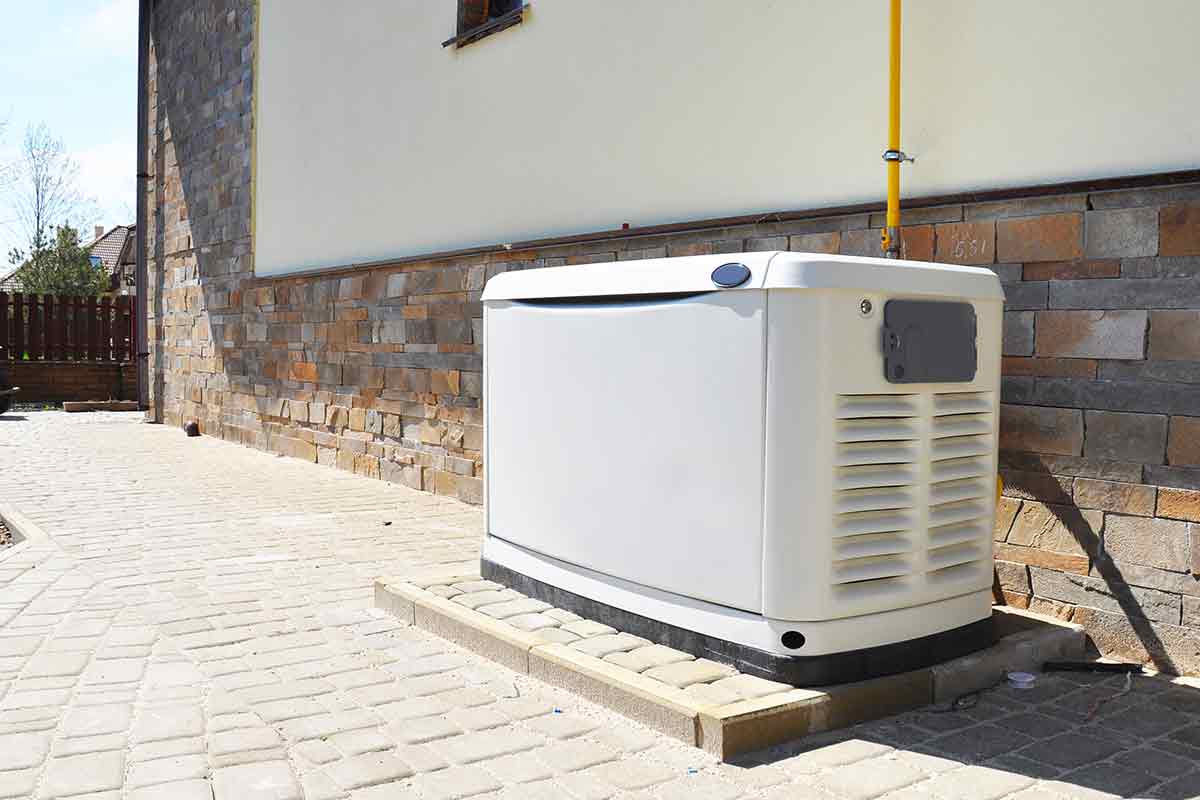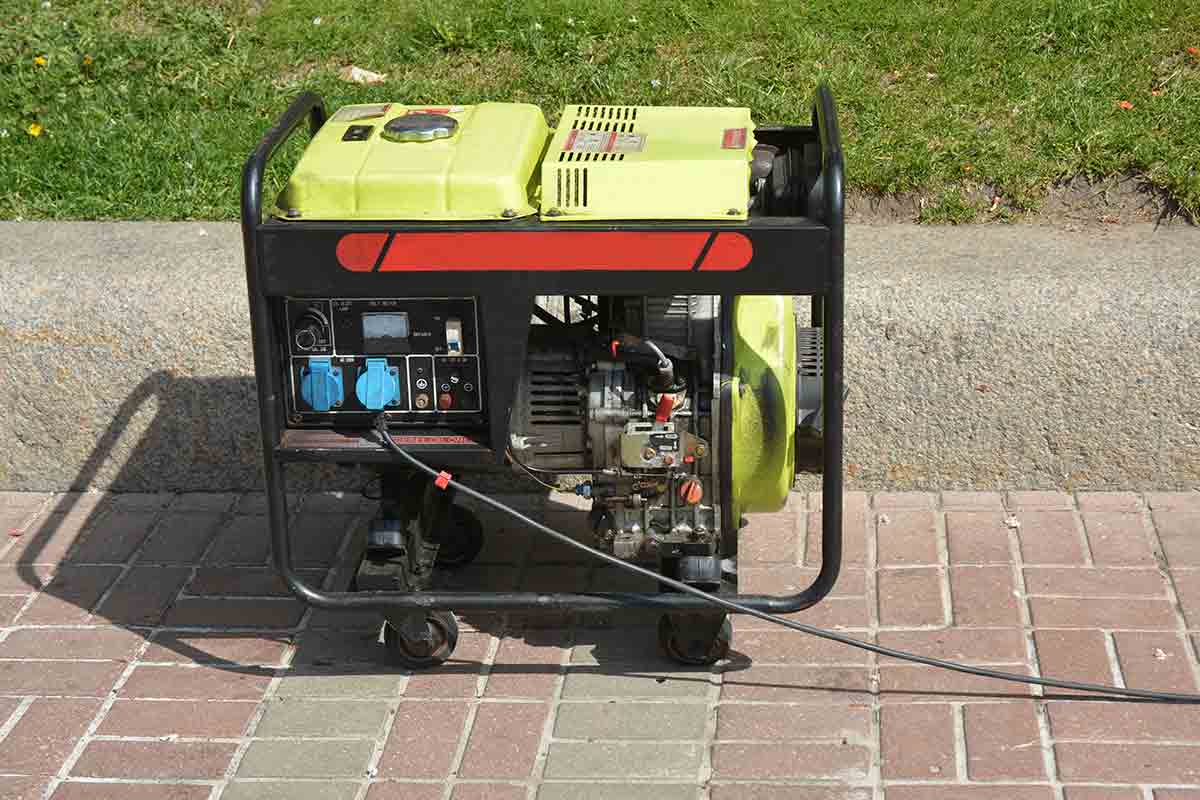Our companies are backed by the Best Pick Guarantee. Call one today!
There’s nothing like losing electricity to make you realize exactly how much you depend on it. Not being able to flip a switch to turn on a light might be a mild inconvenience, but losing your home internet connection can feel downright paralyzing. And if you or anyone in your family rely on sensitive medical equipment, losing power is simply not an option.
If you want the peace of mind of never losing power, a power generator may be on your list of important household purchases. But buying a generator can be overwhelming—they typically are not cheap, and selecting the right size for the needs of your household takes thought and planning.
That’s where your local Best Pick electrician comes in handy! Rather than taking a wild guess about which type of generator is best for you, an electrician will help you understand your power needs and how to use your new generator safely.
Keep reading to learn more about the generator options on today’s market and how to operate them correctly.
Standby Generator vs. Emergency Generator
 The decision between a standby generator and an emergency (often called backup) generator is one of the first choices you’ll face. To help you determine your best option, think about the primary reason you’re in the market for a generator as well as what you’ll need to power during an outage.
The decision between a standby generator and an emergency (often called backup) generator is one of the first choices you’ll face. To help you determine your best option, think about the primary reason you’re in the market for a generator as well as what you’ll need to power during an outage.
Standby generators
Standby generators, sometimes called whole-house generators, are permanently installed near your house and are connected directly to the electrical panel. This type of generator is also powered by a fuel source—usually natural gas or liquid propane from the city or from a tank on your property—and it has an internal transfer switch that will start the generator automatically once your home’s municipal electrical service has stopped.
The main downsides to standby generators are their cost and size. Although you can find small models that are designed to power only a few essentials, most standby generators are designed to power an entire house for several days. These generators can cost tens of thousands of dollars and be quite large in size.
If, however, you live in a remote area that is subject to frequent power outages or you simply cannot or do not want to deal with interruptions in electrical service, a standby generator may be the right choice for you.
Keep in mind that installing a standby generator is not a DIY project. You’ll need to hire a licensed professional electrician to install the generator unit and the transfer switch that makes the unit work safely and correctly.
Emergency/backup generators
Backup generators are portable and are intended to power a few crucial appliances in an emergency. They are not permanently connected to your home’s electrical panel.
Most backup generators are gasoline powered, so their location when in use is very important—to avoid accidental carbon monoxide poisoning, they should be kept outside in a well-ventilated spot that is far away from any outside air intakes.
Backup generators must be started by hand, and appliances can be plugged directly into them with heavy-duty extension cords. Keep in mind that most backup generators are equipped with only a few outlets, so you’ll need to be judicious in deciding which appliances you will power during an emergency.
Gas Generator

The most common types of gasoline-powered generators are small, portable, backup models. Although you can certainly sit down and work out the exact wattage you’ll need based on the running and startup loads of the appliances you will need to power in an emergency, it’s usually better—and easier—to speak to an electrician who specializes in generator sales and installations.
Your electrician will be able to guide you toward the right product for your needs and make sure that it’s installed correctly and safely. Be sure to tell your electrician all of the appliances you’ll use in a power outage—he or she will use this information to determine the size generator you’ll need.
When it comes time to make the final decision, keep this rule of thumb in mind: Choose a generator that can handle a bit more power than you think you’ll need—this will help you avoid straining the engine.
Gas generator maintenance
Because gas-powered generators are essentially combustion engines with a few more bells and whistles, they require maintenance just like any other engine:
- Always keep a supply of fuel on hand.
- Add fuel stabilizer to the gas tank every time you fill it up. You probably won’t use your generator often, and gasoline goes bad when it sits unused for too long—fuel stabilizer prevents the oxidation that can ruin an engine.
- Test the engine periodically. Start the generator up periodically—once a quarter or so—to ensure that it will run properly when you really need it.
Solar-Powered Generator
A solar-powered generator is much quieter than a gas-powered version, and it’s essentially maintenance free. And since a solar-powered generator doesn’t emit any harmful fumes, it’s a fantastic, eco-friendly alternative to traditional generator options.
Rather than using combustible fuel to power a motor, solar-powered generators work by using solar panels to harness the sun’s energy. This energy can then be used directly or stored in batteries for use at a later time. Unless you configure a large network of panels, solar-powered generators are not able to power an entire household, and you’ll need lots of sunlight to recharge the batteries.
A solar generator may be ideal for you, however, if:
- Your main reason for purchasing a generator is to power a few devices—computers and a phone, for instance—small appliances, and light fixtures. Most solar panels are not powerful enough to support the energy needs of major household appliances, such as a refrigerator.
- You live in a part of the country that receives mostly clear, sunny weather. A battery system will allow you to collect and store energy during sunny days, but you may run into difficulties if your area experiences long stretches of cloudy or rainy weather.
- Clean, non-polluting energy is important to you. Pollution from traditional energy sources has a devastating effect on the planet. If you want to shrink your carbon footprint while still being able to use your computer during a power outage, a solar generator is your best bet.
Generator Safety

Just like anything involving engines and electricity, generators should be handled carefully.
- Don’t overload your generator. Your generator’s power output depends on the size of the engine. If you try to power too many appliances, you’ll strain the engine and risk losing power altogether.
- Don’t use your generator indoors. This includes in your garage and on covered porches or patios. Standby generators are vented properly (and can’t be moved), but portable fuel-powered backup generators can cause deadly carbon monoxide poisoning if they’re used in an enclosed space.
- Don’t refill the generator’s fuel tank while the engine is running. You wouldn’t leave your car running while you fill up at the gas station, right? If the generator runs low on fuel (don’t let it run completely out of gas), turn it off and let it cool down before refueling.
- Never plug a generator into your home’s electrical system. Doing this backfeeds electricity into your home’s system—simply put, it reverses the flow of electricity. Backfeeding is incredibly dangerous and can electrocute utility workers, your neighbors, and anyone in your home.
- Don’t use your generator in the rain. As counterintuitive as that might sound, nothing good ever results from electricity and water mixing. Don’t do it.
The Bottom Line
A generator can be a life-saving tool, but deciding on the right generator for your needs is not a quick, one-day process.
- Talk to a licensed professional electrician for guidance in choosing the right generator.
- If you decide on a standby generator, have it installed only by a licensed professional electrician.
- Stay on top of maintenance tasks.
- Always follow safety procedures.
Best Pick electricians are licensed, insured, and vetted for quality via our homeowner survey process. When you work with a Best Pick for your home generator needs, you’re getting the best of the best—we guarantee it.
Generators are intended to be a lifeline during an emergency, so work with the best and take the time to examine your options and make the best choice for your family’s needs.


























